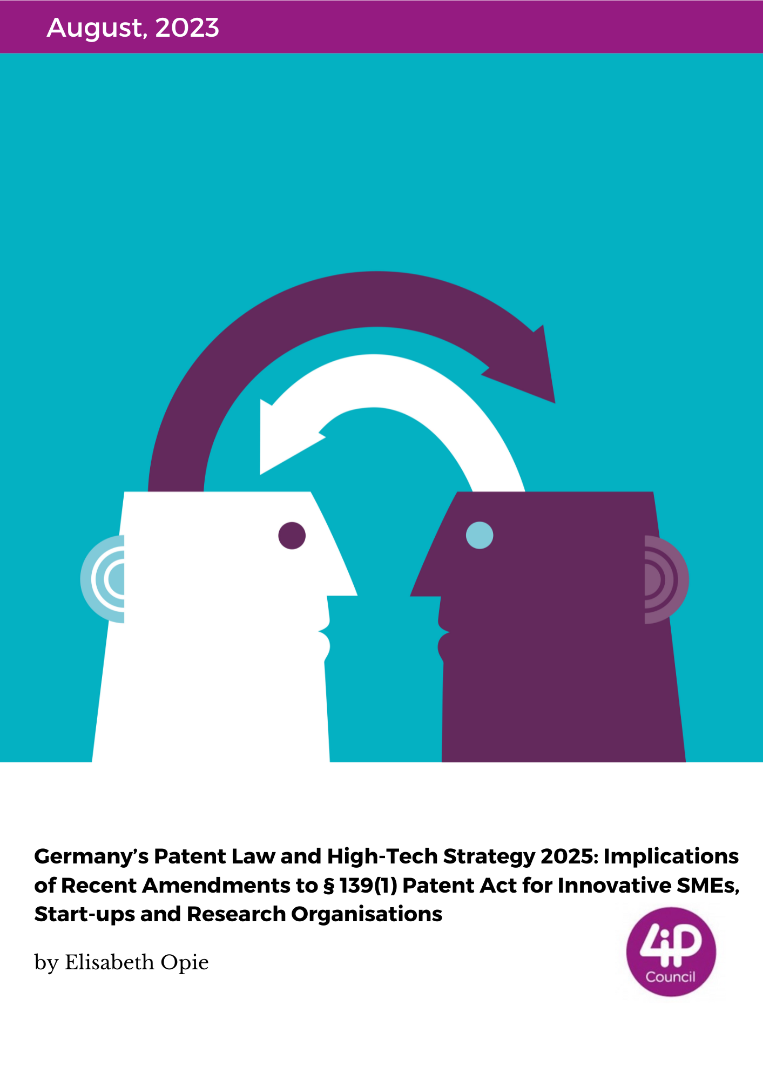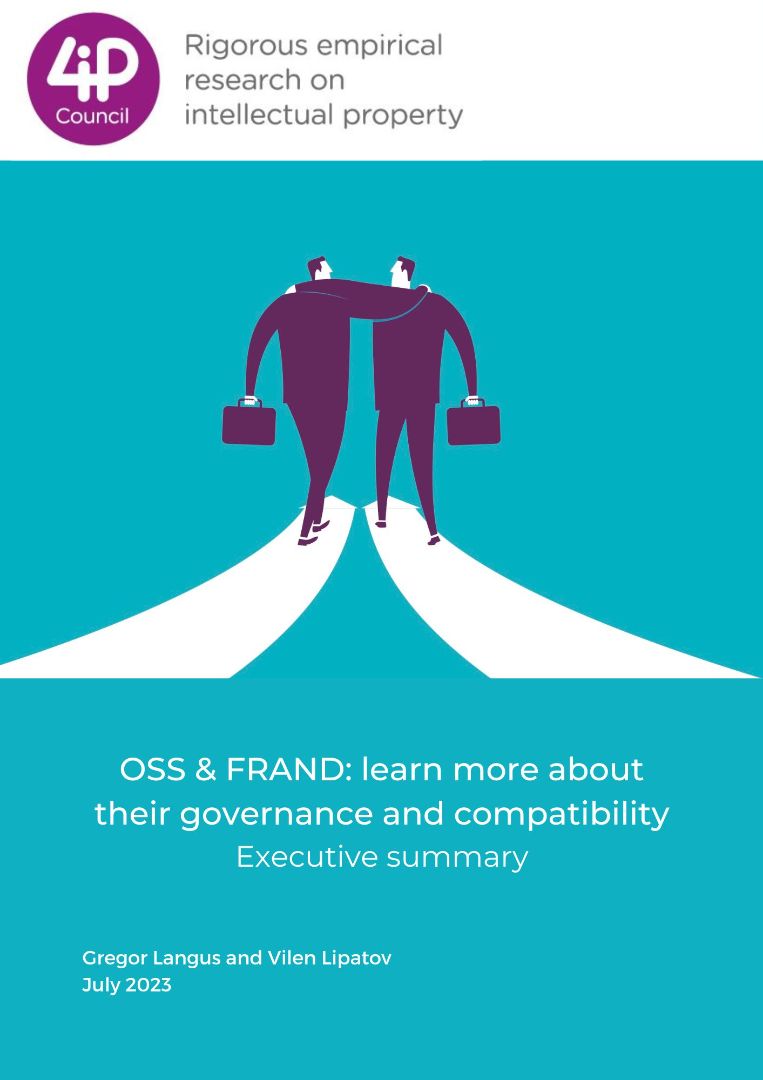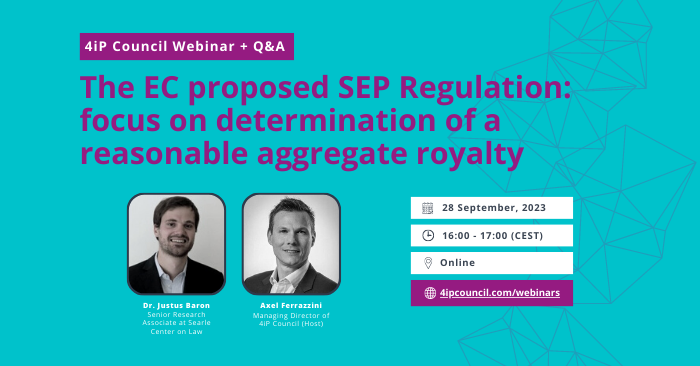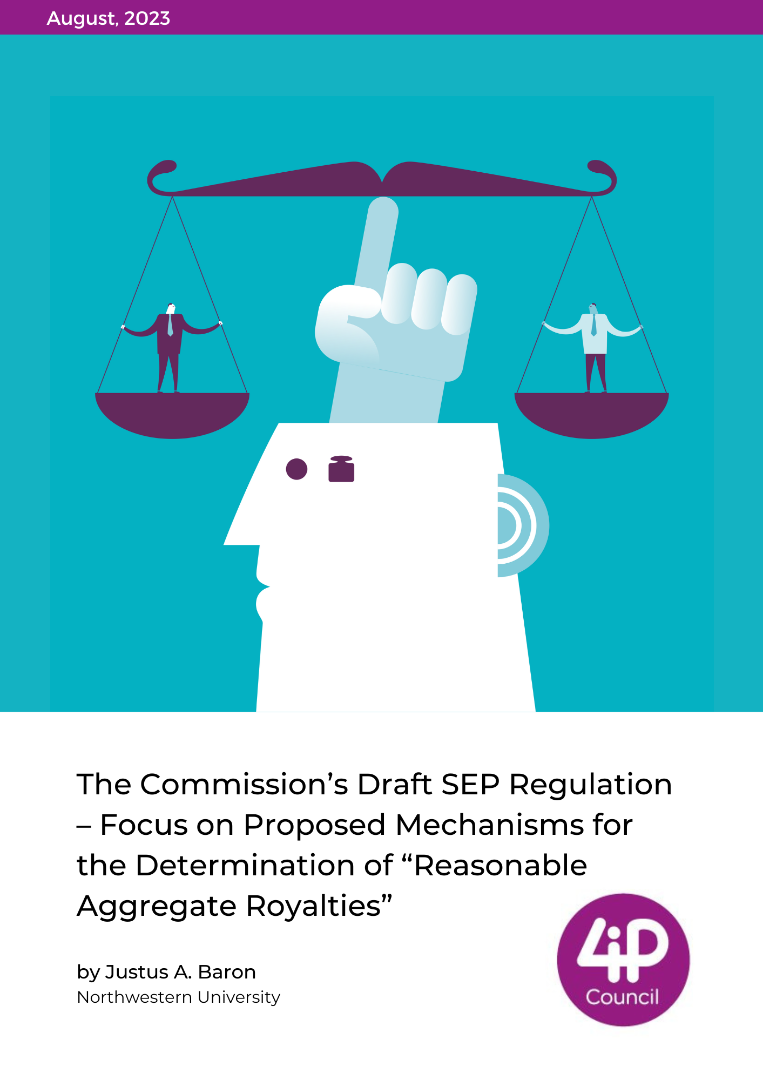Research & Webinars
Here we provide a number of reports and research summaries related to SMEs and innovation. You will find additional materials in our main research section.
Papers, briefs and publications
Elisabeth Opie
Elisabeth Opie BA LLB(Hons) LLM GAICD has over 20 years’ international experience with global innovation. Based in Munich, she is a qualified solicitor (Australia, England and Wales, and Ireland) and registered with the Munich Bar Association. Elisabeth has worked with industry, spin-offs, research organisations and government. She has extensive experience in international business transactions, policy advice, negotiation and alternative dispute resolution. Elisabeth has received a number of awards, including Business and Strategy Excellence Awards, and was the inaugural Global Research Alliance Fellow. She has appeared in the IAM Strategy 300 Global Leaders since 2020 and the IAM Patent 1000 since 2019.
Read more
Germany’s Patent Law and High-Tech Strategy 2025: Implications of Recent Amendments to § 139(1) Patent Act for Innovative SMEs, Start-ups and Research Organisations
by Elisabeth Opie

A robust patent protection system is of enormous importance for sustainable innovation. More specifically, companies' financing, commercialisation of their technologies and also their competitiveness depend on it. This paper looks at a sampling of SMEs and research organisations in Germany that help build foundations for further innovation. As illustrated in this paper, German SMEs are very often located in innovation clusters or hubs which are comprised of research organisations, academic sponsors, large and small companies. There are usually led by a team that ensures collaboration across the cluster, access to research, business planning and the promotion of innovation. Innovation clusters, while often having a physical footprint in a specific region, regularly include virtual national and international collaborations. For example, BioRN, the science and business cluster of the Rhine-Main-Neckar region, is one of the strongest biotech hubs in Germany. Covering a region with a radius of 100 km, in which science, industry and government have an ongoing and strong engagement to produce, transfer and create application for life sciences. The cluster recently celebrated its 25th anniversary and currently has more than 130 members: universities, research institutions, ten global pharmaceutical companies (including research and development sites), SMEs, local, regional and federal authorities, the Chamber of Commerce and Industry (CCI) and investors. This impressive line-up explores new ways to transfer results from leading research and academic institutions to industry and local and international markets. It is in this context that this paper examines the extent to which amendments to § 139(1) of the German Patent Act (PatG) regarding protection against patent infringement could have an impact on Germany’s innovation plans. This paper was originally published in SSRN: https://papers.ssrn.com/sol3/papers.cfm?abstract_id=4527205







